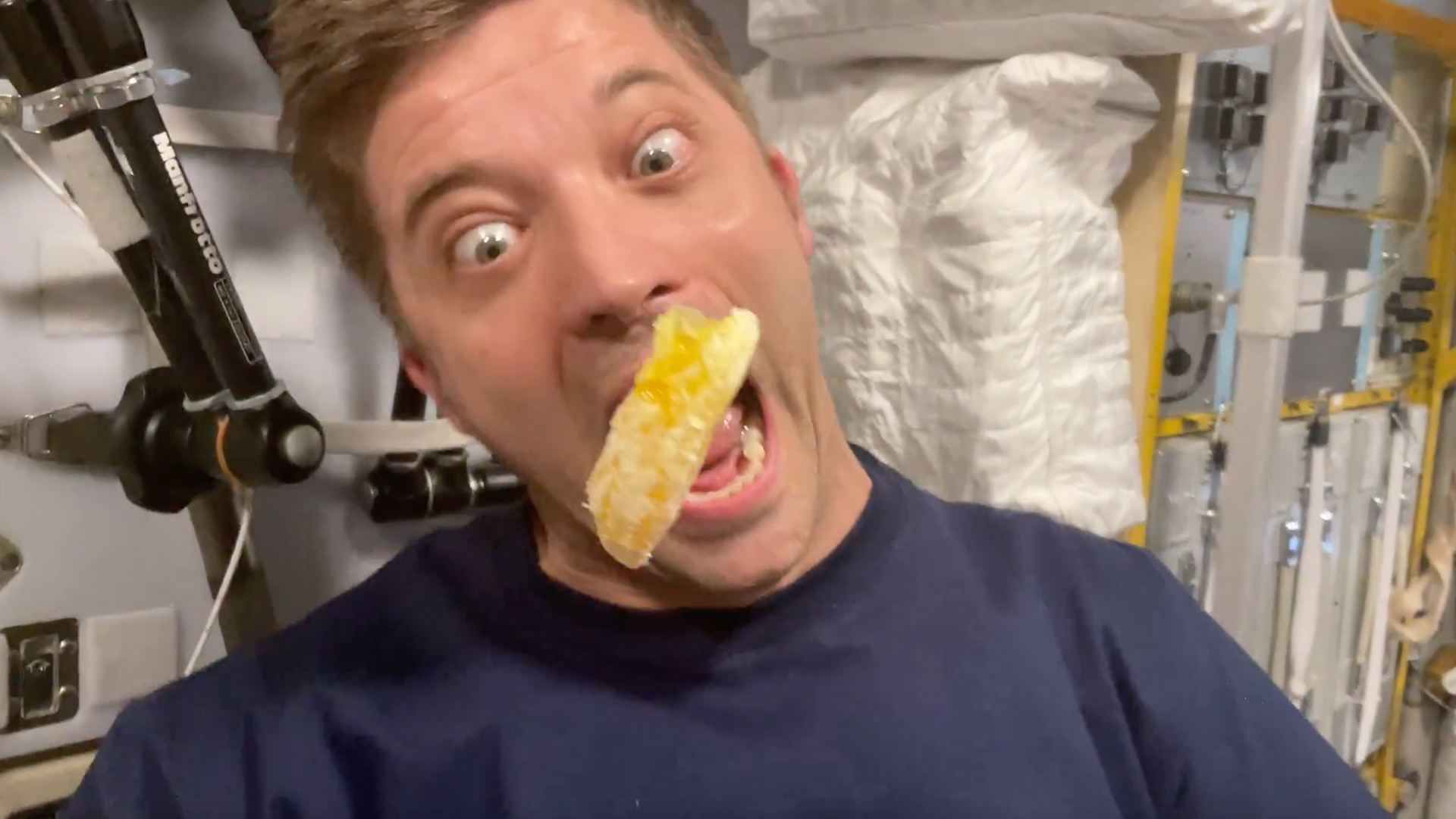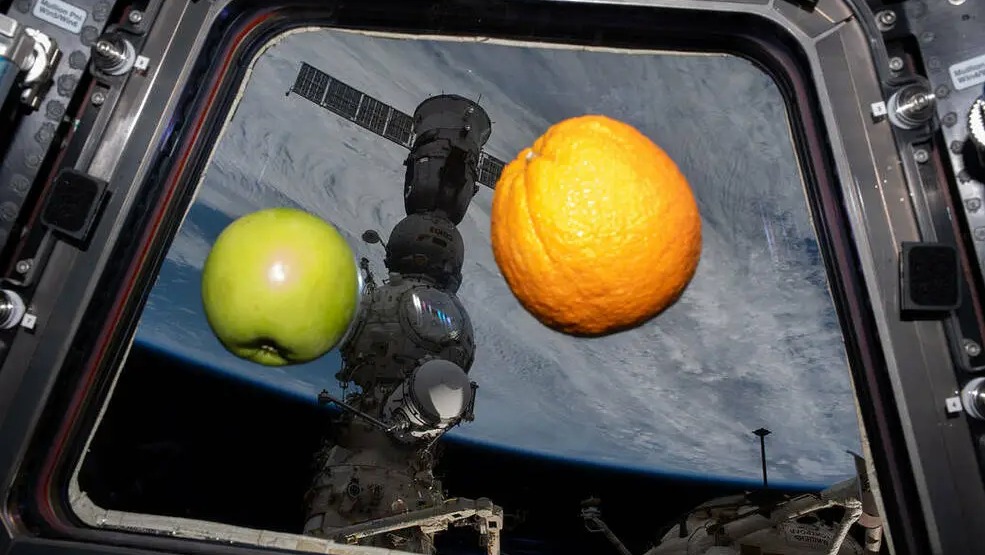
Astronauts only get fresh fruit every few months, so they savor every morsel.
A new video shows NASA astronaut Matthew Dominick making the most of a slice of orange recently shipped up to the International Space Station. A short video follows the orange slowly floating towards Dominick, who goofily opens his mouth to nab the slice between his teeth.
"We recently received some fresh fruit via Прогресс and Cygnus cargo vehicles. We celebrate every bite with these infrequent treats," Dominick wrote on X, formerly Twitter, where he uploaded the video Sunday (Aug. 18).

Since cargo deliveries only arrive at ISS intermittently, there's no easy way of eating fresh veggies and fruit for months on end. NASA has nutritious supplements available, but astronauts find there's no substitute for the real thing.
Related: Astronauts enjoy space veggies and look to the future of cosmic salads
Fresh fruits and vegetables are "the most sought after" by long-duration crews, NASA representatives wrote in 2020. "Their short shelf life and the lack of dedicated refrigeration on ISS for food result in them being a rare commodity in orbit. A limited supply of fresh fruits and vegetables regularly arrives with each visiting vehicle and is eagerly consumed by the onboard crews."

Luckily, there is an alternative literally growing on the ISS: a range of experiments testing out fruit and vegetable gardens in orbit that occasionally allows astronauts to consume the results. Past crews have enjoyed harvests of radishes, lettuce, chile peppers and other fresh foods after planting their seeds in space.
Fresh space food made headlines in 2023 when NASA astronaut Frank Rubio joked about that time he lost tiny space tomatoes on the ISS, which is easy to do given the small size of the bag in which he stored them relative to the six-bedroom size of the station.
When eventually found by another crew, NASA pictures of the Ziploc bag showed the tomatoes were "dehydrated and slightly squished" after being lost in orbit for months, agency officials wrote at the time. "Other than some discoloration, it had no visible microbial or fungal growth."






